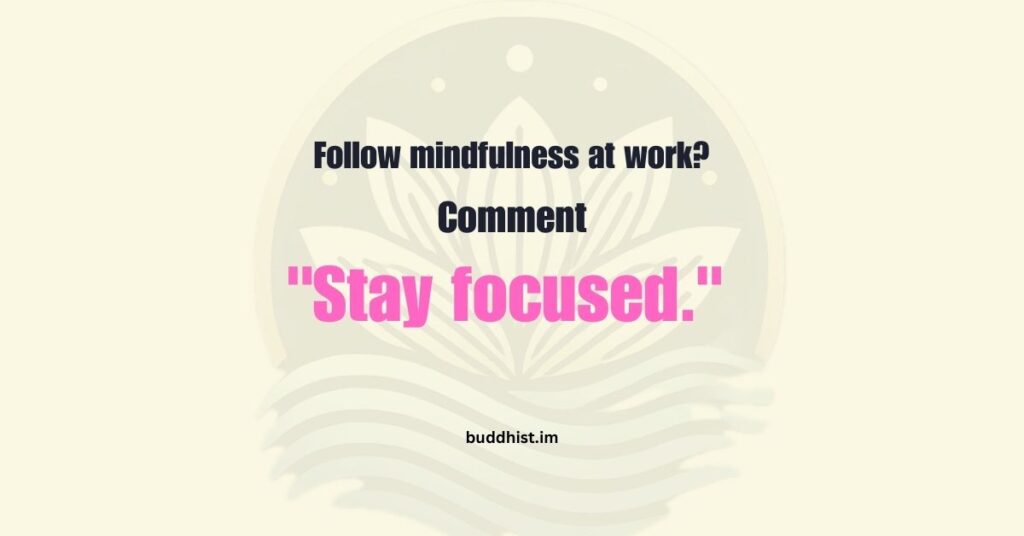Ah, in-laws. They come into our lives as part of the package when we say “I do,” and boy, do they come with their own set of challenges. Whether it’s your mother-in-law suggesting (again) that her lasagna is better than yours, or your father-in-law making unsolicited remarks about your spending habits, navigating in-law relationships can be…let’s say, an adventure.
But here’s the good news: Buddhism, with its time-tested wisdom, has a few tricks up its robe to help you keep your cool and create harmony in your extended family. You don’t need to shave your head, meditate on a mountain, or wear orange robes to make this work, just a bit of mindfulness, compassion, and some practical strategies will do the trick.
So, grab your tea (or coffee, no judgment here) and let’s dive into some Buddhist-approved solutions to smooth things over with the in-laws and bring peace back into your married life.
1. Practice Mindful Listening
When your in-laws are talking, whether it’s about their favorite recipes, parenting tips, or the “right” way to decorate a living room, resist the urge to roll your eyes or mentally compose your rebuttal. Instead, take a deep breath and practice mindful listening.
What’s that? It means truly tuning in to their words, observing their tone, and understanding their feelings without immediately reacting. This aligns with the Buddhist concept of Right Speech, communicating in a way that fosters understanding and harmony.
Pro Tip: When your mother-in-law says, “In my day, we didn’t need all these gadgets to raise kids,” try responding with, “That’s really interesting, how did you handle things back then?” Instead of arguing, you’re showing respect, which can work wonders for your relationship.
2. Compassion Is Your Secret Weapon
It’s easy to label an overbearing in-law as “difficult” or “interfering,” but Buddhism teaches us to look deeper. People act the way they do because of their own experiences, fears, and desires. Maybe your father-in-law’s constant advice stems from a deep desire to feel needed, or your sister-in-law’s icy demeanor masks her own insecurities.
By approaching your in-laws with compassion, you can soften your heart and theirs. The Buddhist concept of Metta, or loving-kindness, is perfect for this.
Practical Exercise: Take a quiet moment and silently send positive thoughts to your in-law. For example: “May they be happy. May they feel loved. May they find peace.” This simple practice can shift your perspective and help you respond with patience and understanding.
3. Detach from Ego, It’s Not Always About You
Ever feel personally attacked when your in-laws question your parenting choices or cooking methods? Same here. But Buddhism reminds us that most of the time, their comments aren’t really about us, they’re about their own preferences, values, or need for control.
By detaching from your ego, you can stop taking their remarks so personally. Instead, treat their opinions like passing clouds in the sky, acknowledge them, but don’t let them storm your inner peace.
How to Apply This: When your in-laws make a comment like, “Are you sure this is the best school for the kids?” respond with something neutral, like, “We’ve thought a lot about this, and it feels right for our family.” Boom, no drama, just calm confidence.
4. Set Boundaries, But Do It Kindly
Buddhism emphasizes the importance of balance, and that applies to in-law relationships too. It’s okay to set boundaries; in fact, it’s essential for a healthy marriage. The key is to do it with kindness and respect.
Instead of saying, “Stop showing up unannounced, it’s so rude,” try, “We love spending time with you! Could we plan visits in advance so we can make sure we’re ready to enjoy them fully?” See the difference?
Boundaries done right protect your peace without hurting anyone else’s feelings.
5. Turn Conflict Into a Growth Opportunity
Every time you clash with your in-laws, think of it as a chance to practice patience and grow spiritually. Buddhism teaches that suffering can lead to enlightenment if we approach it mindfully.
Ask yourself: What is this conflict teaching me? Maybe it’s patience, maybe it’s humility, or maybe it’s just the art of letting go.
Fun Challenge: The next time your in-law criticizes your choice of curtains, take a deep breath and silently thank them (yes, really!) for giving you a chance to practice tolerance.
6. Create Joyful Rituals Together
Finally, one of the best ways to strengthen bonds with your in-laws is to create happy memories together. This could be a monthly family game night, a cooking session, or even a mindfulness practice like meditating together (if they’re open to it).
Shared joy can dissolve resentment and create a foundation of goodwill that makes future conflicts easier to navigate.
Wrapping It Up
Living harmoniously with your in-laws doesn’t mean turning into a saint overnight. It’s about practicing small, mindful actions that align with Buddhist principles: listening with empathy, acting with compassion, and finding balance.
Remember, your marriage is a partnership, and your in-laws are part of that extended team. By bringing mindfulness and kindness into these relationships, you’re not just building a happier family, you’re walking a path of peace, one awkward dinner conversation at a time.
Now, go forth and channel your inner Buddha! Your in-laws might not change overnight, but your perspective will, and that’s where true harmony begins.
What do you think? Did these tips resonate with you? Let me know if you’d like to tweak anything!



![Stop Losing Yourself in Marriage, [Here’s the Fix]](https://buddhist.im/wp-content/uploads/2025/01/Stop-Losing-Yourself-in-Marriage—Heres-the-Fix-1024x536.jpg)
![Stop Over-Explaining [Here’s What to Do Instead]](https://buddhist.im/wp-content/uploads/2025/01/Stop-Over-Explaining-Heres-What-to-Do-Instead-1024x536.jpg)






![[Trust Thrives on THIS] And It’s Easier Than You Think!](https://buddhist.im/wp-content/uploads/2025/01/Trust-Thrives-on-THIS—And-Its-Easier-Than-You-Think-1024x536.jpg)








